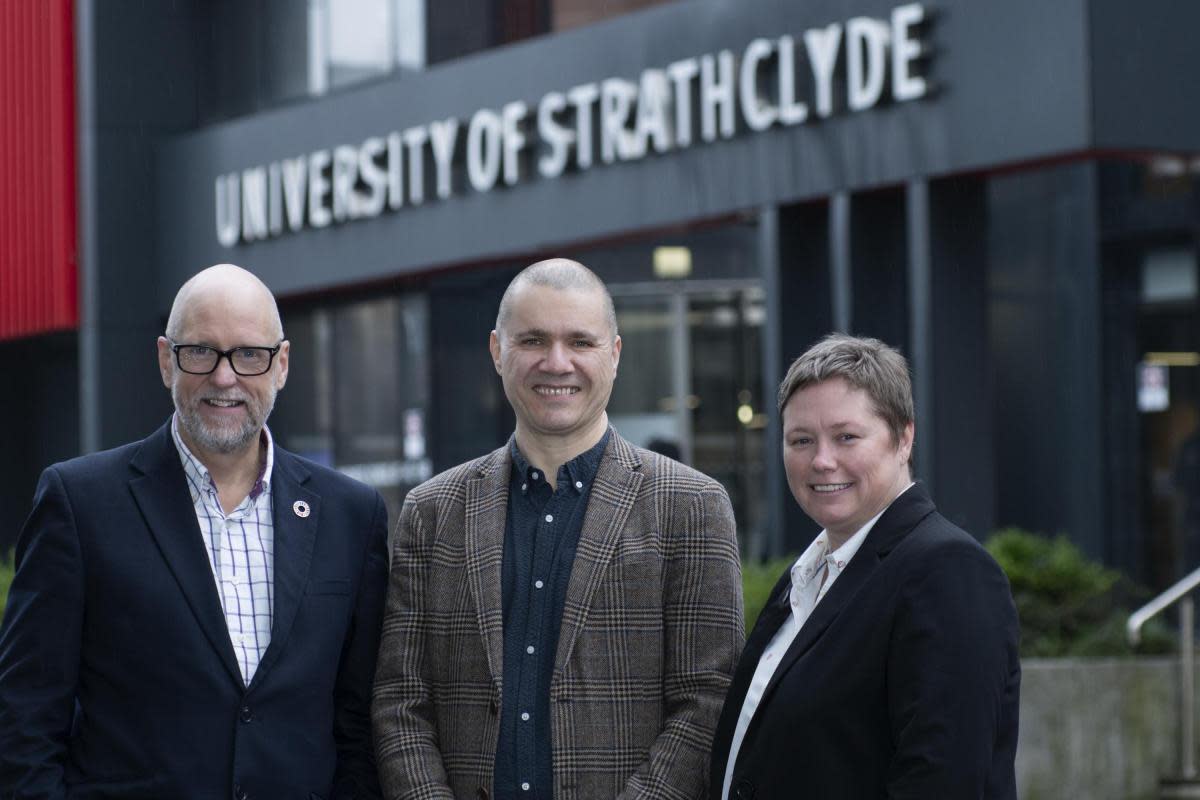Get on course to invest in an ethical economic environment in Scotland

Scotland’s innovative entrepreneurial spirit strives for positive societal impact, with Strathclyde Business School and Scottish National Investment Bank now pioneering a transformative new programme for leaders and investors to achieve responsible growth and create meaningful economic change
Scotland is famed for being an entrepreneurial nation, with a rich legacy of starting and running businesses.
Across today’s SME landscape, many are now driven by a desire to go beyond commercial success and use their businesses to effect long-term change for good across Scotland, through the way they manage and scale their businesses.
As good employers and good corporate citizens, there is an increasing interest in understanding and delivering meaningful Environmental, Social and Governance (ESG) metrics, or to take that one step further, to really look at driving long-term societal and economic impact through the way they do business.
Impact investing is a simple idea; to use business as a tool to create positive, demonstrable, social or environmental change while also generating positive financial returns.
The nature of the challenges to address across the economy, environment and in society means businesses need to try and do more to disrupt and provoke change, to meet both the urgency and the scale of challenge – to actively aim to maximise positive impact.
The good news is that those businesses that try to make a positive impact on society with good practice on this front can have a better chance of scaling up by attracting a growing breed of investors who are interested in more than the bottom line.
Businesses that hardwire impact-led thinking and measurement into their strategy from the outset could have a competitive advantage when it comes to seeking investment as well as a point of differentiation that helps attract customers along with attracting, retaining and motivating staff.
The importance of impact investment has been recognised by both the Scottish National Investment Bank and the award-winning Strathclyde Business School who have come together to launch a new programme to help upskill businesses in this growing area.
The Scottish Impact Investor Readiness Programme was developed following extensive research into the challenges that businesses with a focus on environmental and societal impact face when looking to scale, and the opportunities that can be created from developing practices in this area.
The programme aims to help owners grow their businesses responsibly, with a focus on helping them develop a better understanding of ESG considerations and how to drive and measure impact.
The new executive education programme is the latest addition to Strathclyde’s portfolio of programmes for the leaders of companies looking to grow and scale and will be delivered by experts from across the university, including the ScaleUp Institute endorsed Hunter Centre for Entrepreneurship and the Centre for Sustainable Development, utilising world class, internationally recognised research and real-world practitioners.
John Anderson, Director of Growth Programmes, Hunter Centre for Entrepreneurship said: “Having supported over 450 SMEs since 2015, across multiple practical programmes, we’re delighted to partner with the Scottish National Investment Bank to continue our mission in supporting leaders of ambitious, growth-oriented businesses at scale.”
He pointed out that small businesses have a significant impact on the UK’s GDP and in Scotland.
“Growing SMEs have influence, locally within their communities and with suppliers and customers, and in time regulation around ESG reporting will only increase and so it’s key for SMEs to build responsible business practices into their growth strategy now.”

Strathclyde Business School
David Ritchie, Executive Director of Partnerships & Engagement at the Scottish National Investment Bank said: “As an impact investor, we can see first-hand how focusing on critical impact measures can drive long-term societal and economic benefits for Scotland for generations to come. We have a portfolio of 35 businesses, all of whom set out clear and measurable impact targets as part of our commercial investment process, and we monitor progress with them annually.
“Investors demand more than commercial returns, they also want to see the positive human impact that their funding enables. It’s never been more pressing for businesses to understand and embed the principles of impact investing in their business plans.”
Thanks to the partnership arrangement, the programme has been made as accessible as possible, with fees heavily subsidised, reducing the usual cost of £7,500 down to £500 per participant.
Applications are now open and the programme begins on August 26.
Mr Ritchie said it was possible for companies to both grow and have a positive impact on society and the economy.
“Every deal we look at has to deliver impact but it still has to deliver a commercial return. We are always looking for high quality investments where there can be a return to the public purse.”
It is a laudable goal but is impact measurable?
“It is - as long as you are clear on the specific impacts you want to see such as an increase in the number of apprenticeships, a reduction in CO2 emissions or diversity and fair work principles in the workplace,” said Mr Ritchie.
“These are all things we can build into our agreements when we make our investments and are therefore binding and measurable.” While impact investment is still an evolving sector, Mr Ritchie said it was clear that more investors were looking for more than a “do no harm” ESG policy from companies.
“The ecosystem of investors seeking more sustainable and impactful investment opportunities is growing and if a business says its unique selling point is delivering impact beyond a commercial return it can give them access to new forms of capital,” he explained.
“The impact investing community in Scotland is one we are keen to continue to help grow.
“The more capital is available, and the more impact investors are engaging with other investors, advisors, and businesses, the more the ecosystem
will be familiar with how impact is achieved.
“Developing that community in Scotland and a business base in Scotland that has impact at its
heart can only be beneficial, so I do think there is significant potential there.”
However, Mr Anderson pointed out that impact and ESG can feel overly complex for SMEs which is why the launch of the new programme is important.
“Helping businesses to focus on the impacts that are absolutely fundamental to what they do as a company is key,” he said.
He added that any business looking to build a competitive advantage, or to establish a clear purpose, should be thinking about how impact might work for them.
“You don’t have to be an ‘obvious’ impact business – like a renewable energy company or provider of affordable housing – any company in any industry can embed impact into their strategy,” said Mr Anderson.
For example, clothing brand Patagonia sells extremely well but still has impact and purpose hardwired into everything it does.
“Building impact into your business strategy and plans from early on in your business’s life is much more effective, productive, and authentic than
trying to retrofit it later,” Mr Anderson said.
“SMEs are starting from quite an early rung on the ladder but a course like this which helps develop foundational knowledge will put them much more on the front foot and give them a real competitive edge.
“It is difficult to scale up but the new course can potentially help them access other forms of capital as they go forward.”
Mr Ritchie added: “As an organisation we are trying to play a leading role in this because we see huge potential in Scotland.
“There’s a small and growing community of impact investors here but there is a well-established impact investment community globally.”
Gillian Docherty, Chief Commercial Officer at the University of Strathclyde said: “As a
socially progressive university and the Place of Useful Learning, Strathclyde has a responsibility not only to our students but to society as a whole in making a positive difference to the world.
“This programme offers an opportunity for business leaders to add value to their existing experiences, and also encourage new responsible ways of growing businesses in Scotland.”

 Yahoo News
Yahoo News 
